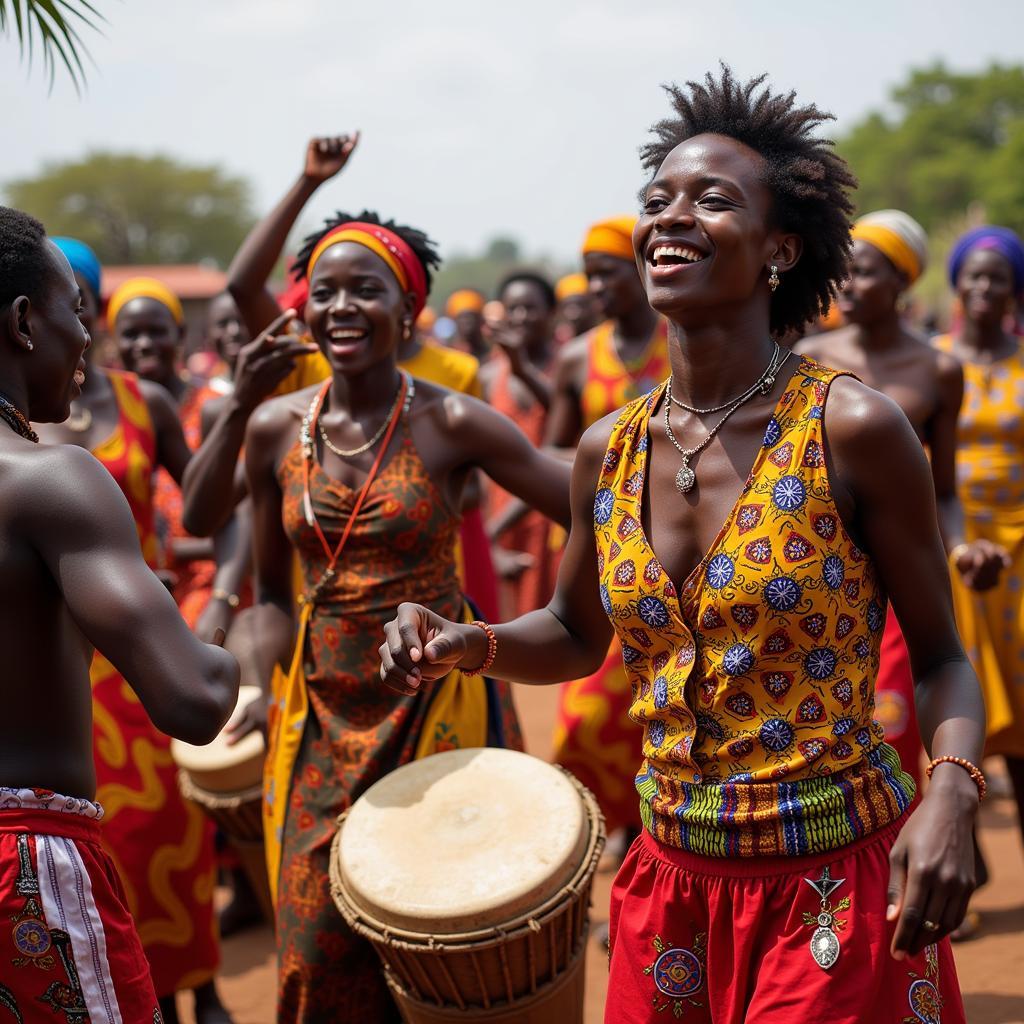Exploring the African, Caribbean, and Pacific (ACP) Group of States
The African, Caribbean, and Pacific (ACP) Group of States is a remarkable organization uniting nations across three continents, bound by a shared history and common development goals. These nations, many former colonies of European powers, came together to leverage collective strength and address shared challenges on the global stage. This article delves into the history, objectives, and modern relevance of the ACP Group, exploring its role in international development and cooperation.
A Historical Overview of the ACP Group
The ACP Group’s origins trace back to the 1975 Georgetown Agreement, which established a framework for cooperation between the then European Economic Community (EEC) and a group of 46 African, Caribbean, and Pacific states. The agreement aimed to foster trade, economic development, and political dialogue. african caribbean and pacific group of states. This groundbreaking agreement acknowledged the historical ties and the ongoing need for collaboration between these regions. Over time, the ACP Group expanded, reflecting the growing number of independent nations in these regions.
The Georgetown Agreement served as the foundation for several Lomé Conventions, which further solidified the relationship between the ACP Group and the European Union (EU), the successor to the EEC. These conventions provided preferential trade access for ACP products to the EU market and established development funds.
The Objectives and Functions of the ACP Group
The ACP Group’s primary objectives center around sustainable development, poverty reduction, and increased participation in the global economy. These objectives are pursued through various mechanisms:
- Promoting trade: The ACP Group advocates for fair and equitable trade practices, seeking to enhance market access for its member states.
- Encouraging investment: The group works to attract foreign direct investment to stimulate economic growth and create jobs.
- Fostering regional integration: The ACP Group encourages collaboration among its members to strengthen regional economies and promote peace and security.
- Addressing climate change: Recognizing the vulnerability of many ACP states to the impacts of climate change, the group actively participates in international climate negotiations and promotes climate resilience.
african caribbean. Furthermore, the ACP Group plays a crucial role in advocating for its member states’ interests in international fora, such as the United Nations.
The Modern Relevance of the ACP Group in a Changing World
In the face of evolving global dynamics, the ACP Group continues to adapt and redefine its role. The Cotonou Agreement, signed in 2000, succeeded the Lomé Conventions and introduced a new focus on political dialogue, human rights, and good governance.
What is the role of the ACP Group today? The ACP Group provides a platform for South-South cooperation, allowing member states to share knowledge, expertise, and best practices. The group also focuses on emerging challenges, such as sustainable development goals, migration, and security.
african caribbean and pacific group of countries. This cooperation remains vital for addressing shared challenges and promoting sustainable development.
Dr. Abena Osei, a prominent economist specializing in African development, emphasizes the group’s importance: “The ACP Group represents a powerful collective voice for developing nations. By working together, these states can amplify their influence on the global stage and advocate for policies that support their development aspirations.”
The Future of the ACP, Post-Cotonou
The Cotonou Agreement expired in 2020, marking a new chapter in the ACP-EU relationship. Negotiations for a successor agreement are underway, aiming to create a more modern and dynamic partnership. This new agreement will likely focus on shared global challenges such as climate change, sustainable development, and peace and security.
african carribean & pacific group of statespdf. The group aims to strengthen its partnerships with other international organizations and to enhance its internal capacity to deliver effective development programs.
Professor Kwame Nkrumah, a renowned scholar of international relations, states: “The future of the ACP Group lies in its ability to adapt to a changing global landscape. By embracing innovation and forging new partnerships, the group can continue to play a vital role in promoting the development of its member states.”
In conclusion, the African, Caribbean, and Pacific (ACP) Group of States represents a vital partnership for development and cooperation. From its historical origins in the Georgetown Agreement to the ongoing negotiations for a post-Cotonou framework, the ACP Group has continuously strived to empower its member states and address their unique challenges. The ACP Group’s future depends on its capacity to adapt to global changes and solidify its role as a champion for sustainable development and global solidarity.
FAQ
-
What does ACP stand for?
- ACP stands for African, Caribbean, and Pacific Group of States.
-
When was the ACP Group founded?
- The ACP Group was founded in 1975 with the signing of the Georgetown Agreement.
-
How many countries are members of the ACP Group?
- There are currently 79 member states in the ACP Group.
-
What is the purpose of the ACP Group?
- The ACP Group promotes sustainable development and cooperation amongst its member states.
-
What is the Cotonou Agreement?
- The Cotonou Agreement is a partnership agreement between the ACP Group and the EU.
-
What is the future of the ACP-EU partnership?
- A new agreement is being negotiated to replace the expired Cotonou Agreement.
Need assistance? Contact us 24/7: Phone: +255768904061, Email: kaka.mag@gmail.com, or visit us at Mbarali DC Mawindi, Kangaga, Tanzania.
